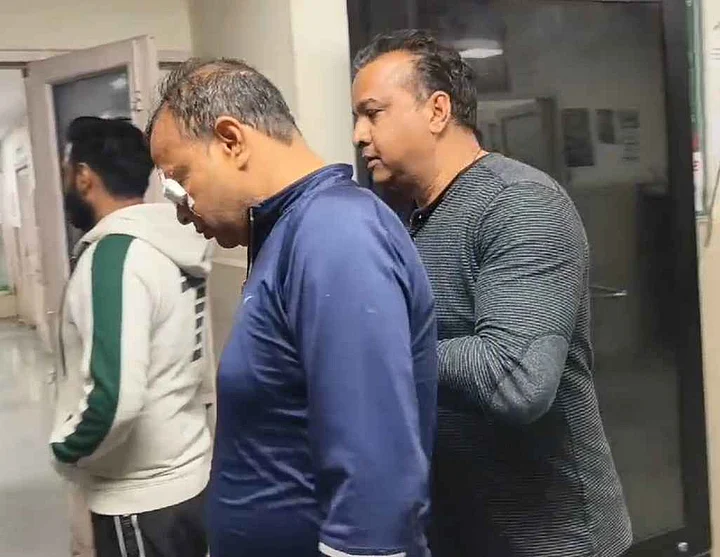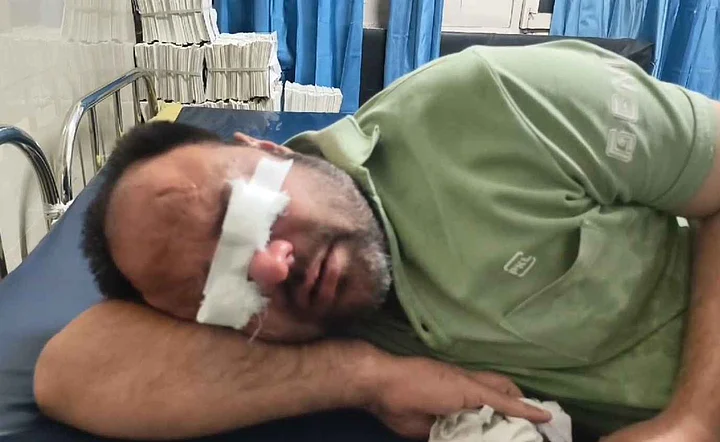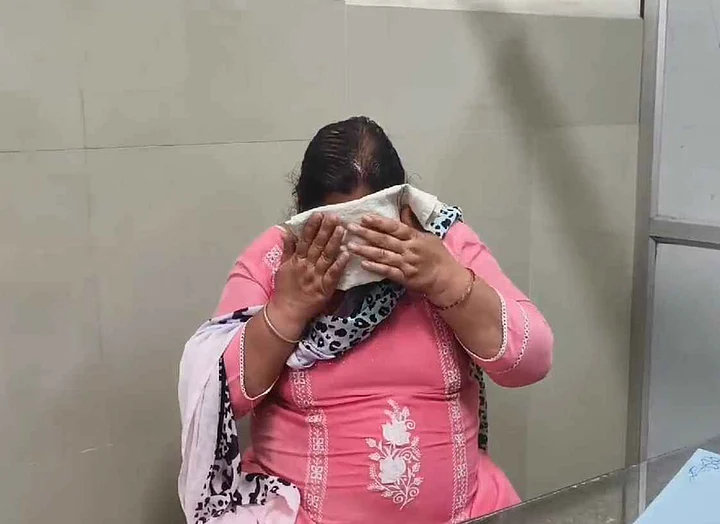As soon as you search for "Hairfall treatment" on Google, you'll find results where some people would claim to stop hairfall in 100 days, while others promise results in just eight days.
By 2024, the market for products related to preventing hair fall in India reached $282.41 million. As one can imagine, not all of these products are scientifically proven.
While it might seem like there's no harm in trying any product, but the truth is the most dangerous impact that any fake news could have are misleading claims related to health. A living example of this is a recent incident that took place in Sangrur, Punjab.
In March 2025, a hair oil claiming to treat hair fall was heavily promoted on social media. Local celebrities from Punjab also actively endorsed this oil. Thousands of people went to this camp. However, when people returned from the camp after applying this oil on their heads, they began to experience burning sensations in their eyes and on their skin.
Gradually, this irritation—or rather, these side effects—intensified to the point of becoming unbearable. Panic spread throughout the city. More than 200 people suffered from a severe eye infection.
(Swipe right to view all images.)
The Quint’s fact-checking team, WebQoof, reached Sangrur in Punjab to find out where the promotion of the oil that caused the infections originated from.
We will further look into what role social media platforms played in this and how dangerous the impact could have been and why the Sangrur administration didn’t take timely action.
Who Spread These Rumours?
The victims said that the rumour was spread through a Facebook page named '9X0 style'. If you go through this page, you'll find that the company regularly organises such camps where an oil is applied to people's scalps.
The camp that was held in Sangrur on 16 March was also promoted from this page.
What Were the Effects of These Rumours?
The people of Sangrur not only suffered from eye infections but also from embarrassment after the incident was highlighted by different media outlets. This is the reason why most individuals were unwilling to speak about the incident. They said, "We’ve already been mocked enough — it’s not possible for us to come on camera and say anything more."
We spoke to Sanjeev Kumar, who runs a gift shop and had attended the camp. He told us that the camp claimed the oil would start showing results from the very next day.
"I don’t know about hair growing back, but the oil caused me a lot of trouble. The swelling and burning in my eyes were so severe that it became unbearable. I managed for 2–3 hours, but eventually had to go to the hospital. Thankfully, I received treatment in time, and a few hours later, I started to feel some relief. I wasn’t the only one, many others experienced the same thing that day."Sanjeev Kumar, victim
The crowd of people who were suffering from eye infections was so huge that Dr Vaibhav Mittal, who runs a private clinic in Sangrur, began offering treatment at his clinic.
"Just a few hours after the camp, chaos spread across the city. The biggest issue was the unbearable pain people were experiencing. If correct treatment hadn’t been provided on time, the consequences could have been very serious."Dr Vaibhav Mittal, Ophthalmologist
According to experts, the substance present in the oil was so harmful that it should never have been applied to the scalp or skin under any circumstances.
"That substance wasn’t a medicine, it was an irritant. It caused a condition called irritant contact dermatitis. When this irritant came in contact with the skin, it caused skin inflammation and led to blisters. The swelling was so severe that it reached the eyes, causing redness and swelling. The irritant was far too strong and not meant for hair loss at all or anything else."Dr. Navdeep, District Hospital, Sangrur
What Action Was Taken Against Those Who Promoted the Oil?
The Sangrur administration said the camp was held without permission. Police filed an FIR against the organisers, Tajinder Pal Singh and Amandeep Singh, under sections related to promoting misleading medicines.
While rejecting the anticipatory bail plea of accused Amandeep Singh after two months from the incident, the Punjab and Haryana High Court said that the matter is related to public health and is serious.
However, the bigger question is — why did the police take action only after the effects of the rumours became visible? Shouldn't the promotion of an oil without backed by scientific evidence be stopped at the time it was being advertised? Is it possible that the Sangrur administration had no clue about a camp attended by thousands of people?
(Not convinced of a post or information you came across online and want it verified? Send us the details on WhatsApp at 9540511818 , or e-mail it to us at webqoof@thequint.com and we'll fact-check it for you. You can also read all our fact-checked stories here.)


